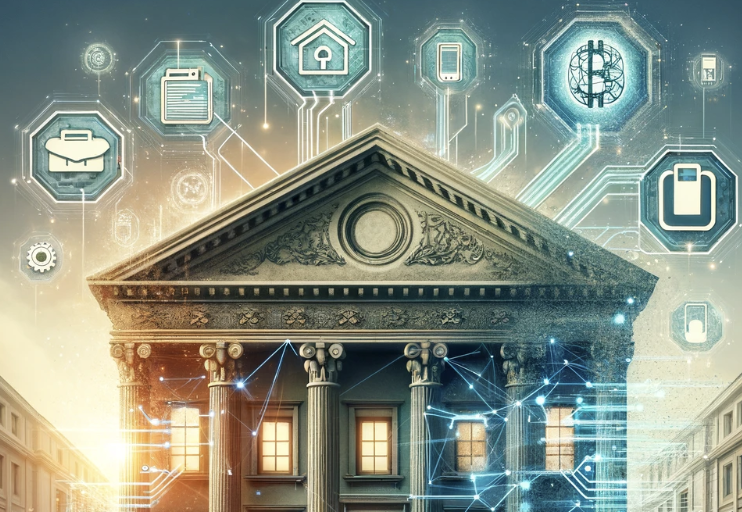In the dynamic realm of finance, a groundbreaking transformation is underway, merging the steadfast reliability of traditional banking with the agile innovation of Financial Technology (FinTech). This fusion is not merely a coexistence but a profound integration that promises to redefine the essence of banking, investment, and financial services. As we delve into the nuances of this transition, we explore how this amalgamation enhances accessibility, efficiency, and personalization in finance, heralding a new era of financial empowerment for individuals and businesses alike.

The Evolution of Traditional Banking
Historically, traditional banks have been the pillars of the financial sector, offering a broad spectrum of services, from deposits and loans to investment and wealth management. However, the digital revolution has prompted these institutions to rethink their operations and services. The challenge? To adapt to a rapidly changing landscape where technology-driven solutions are becoming the norm. This evolution is not just about adopting new technologies but about embracing a fundamental shift towards more customer-centric and technologically sophisticated services.

The Rise of FinTech: Disrupting Financial Services
FinTech, a term that encompasses a wide range of technology-driven financial services, has emerged as a formidable force of innovation and disruption. From mobile payments and digital wallets to peer-to-peer lending and blockchain-based transactions, FinTech companies have leveraged technology to fill gaps left by traditional banking, offering more tailored, accessible, and efficient services. This disruption has not only sparked a wave of competition but has also paved the way for collaborations that leverage the strengths of both sectors.

A Synergistic Future
The convergence of traditional banking and FinTech is creating a synergistic landscape where the reliability and regulatory expertise of banks blend with the innovative, user-focused approach of FinTech. This synergy is giving birth to a financial ecosystem that is more inclusive, efficient, and resilient. Key areas of collaboration include enhancing digital payment systems, streamlining the lending process, and offering personalized investment advice through AI-driven platforms. Furthermore, blockchain technology is being explored as a means to secure transactions and improve transparency, setting the stage for a financial infrastructure that's both robust and flexible.
Implications for Consumers and Businesses
For consumers and businesses, this fusion means greater access to financial services, improved customer experience, and enhanced control over personal and business finances. The integration also fosters financial literacy and empowerment, as digital platforms offer educational resources and tools to make informed financial decisions. Additionally, the rise of digital banking and FinTech solutions is democratizing access to finance, enabling small businesses and entrepreneurs in remote or underserved regions to participate in the global economy.





